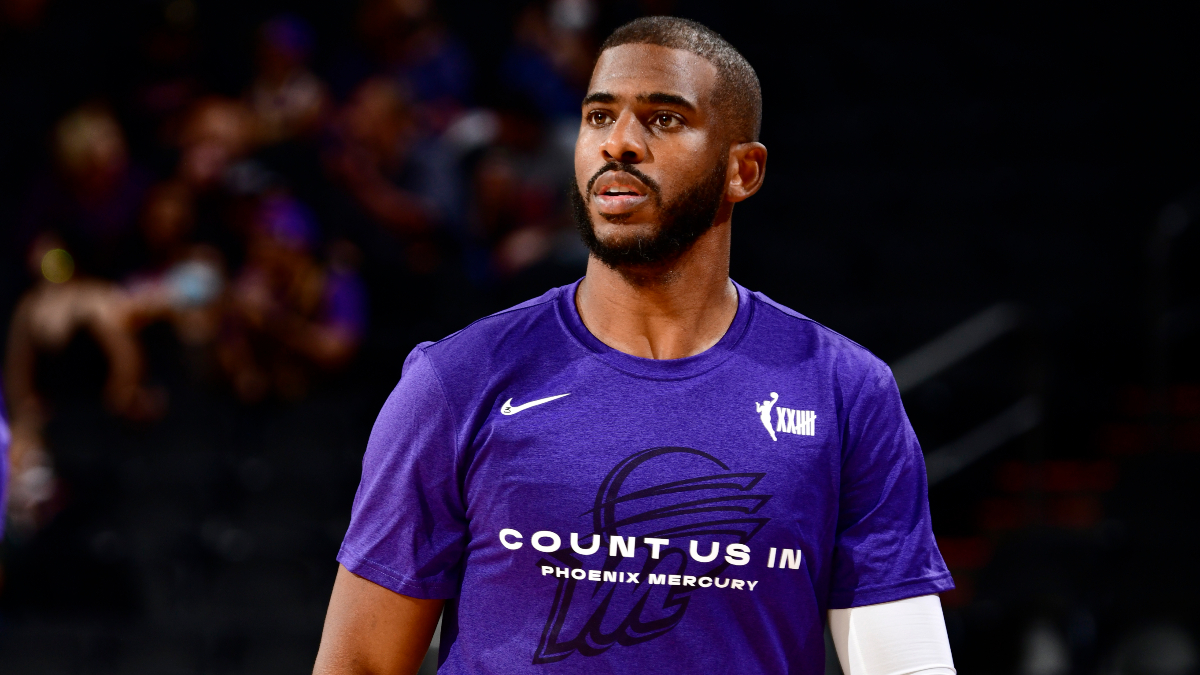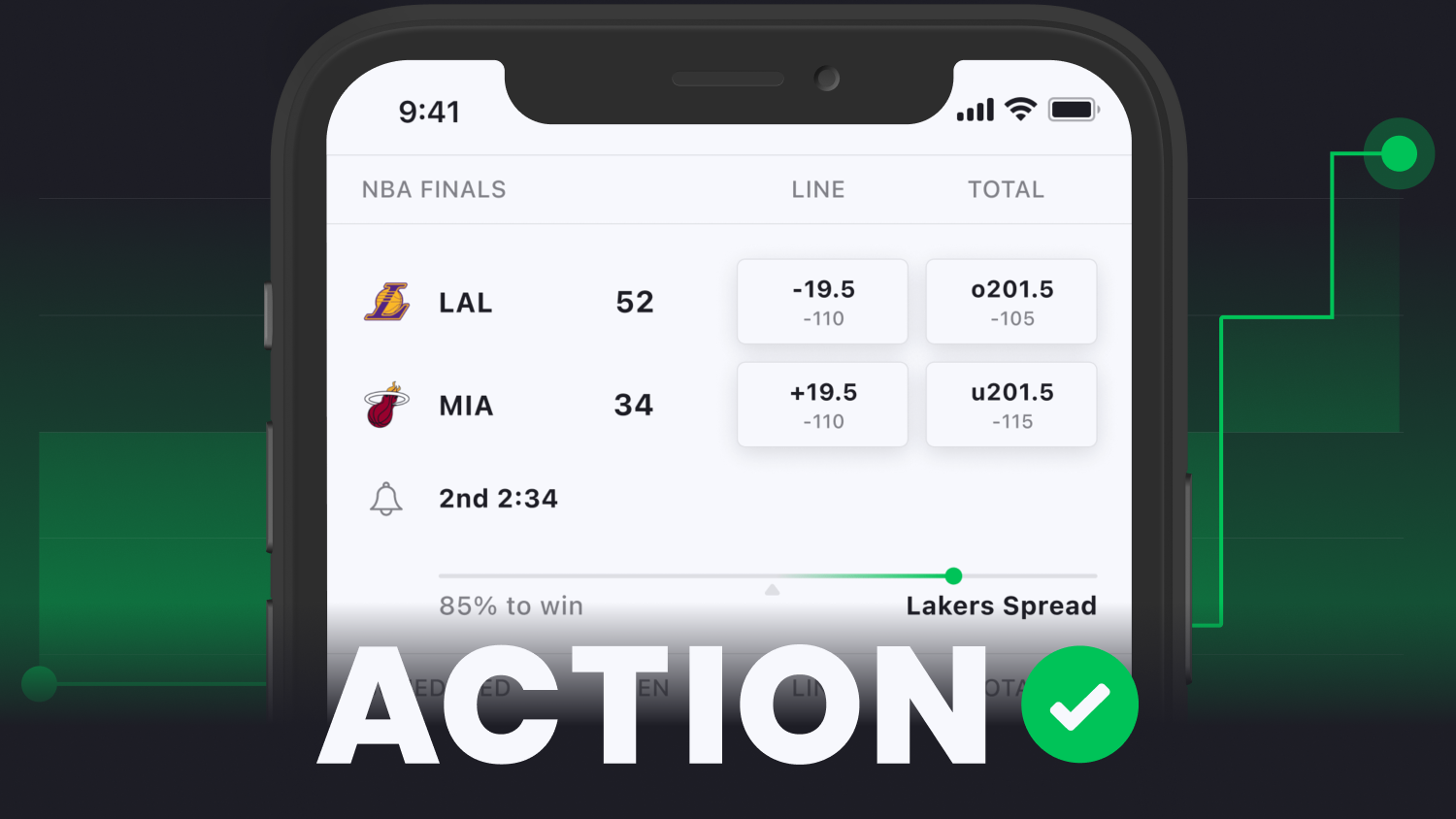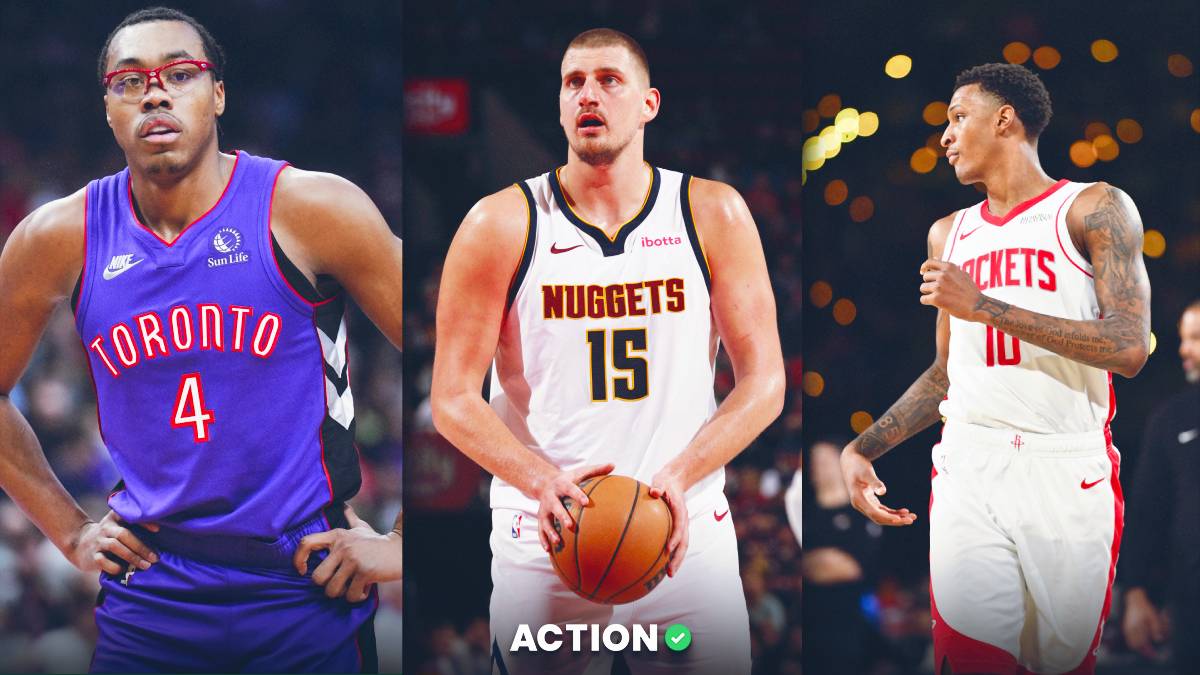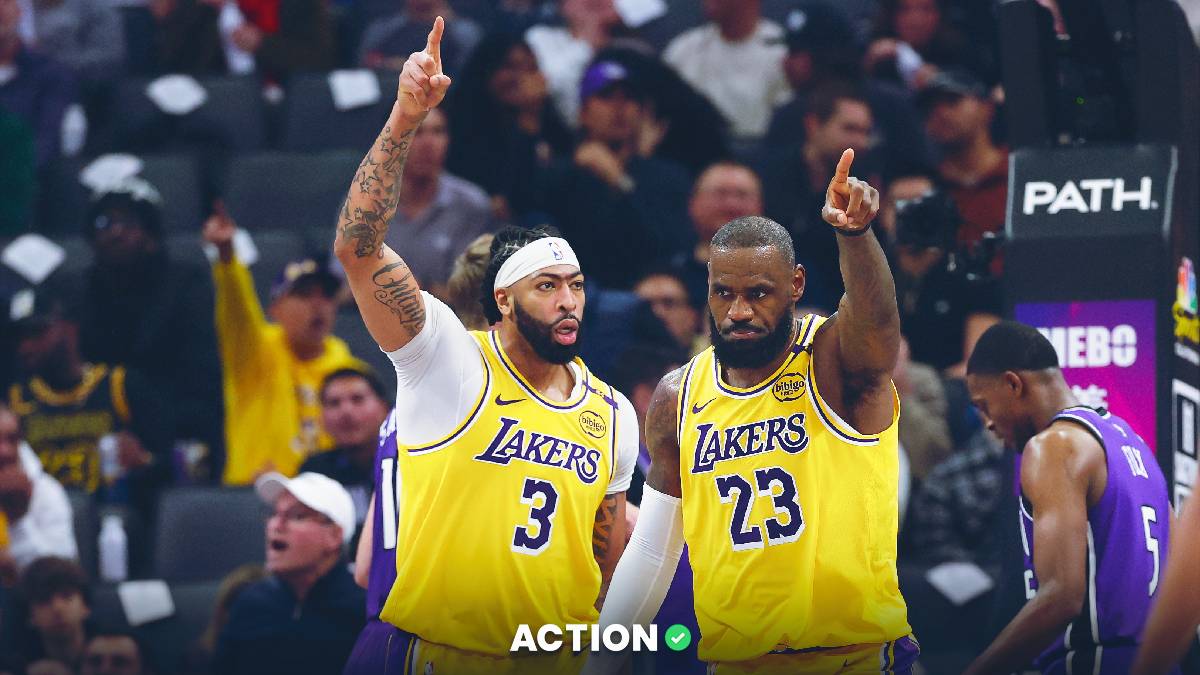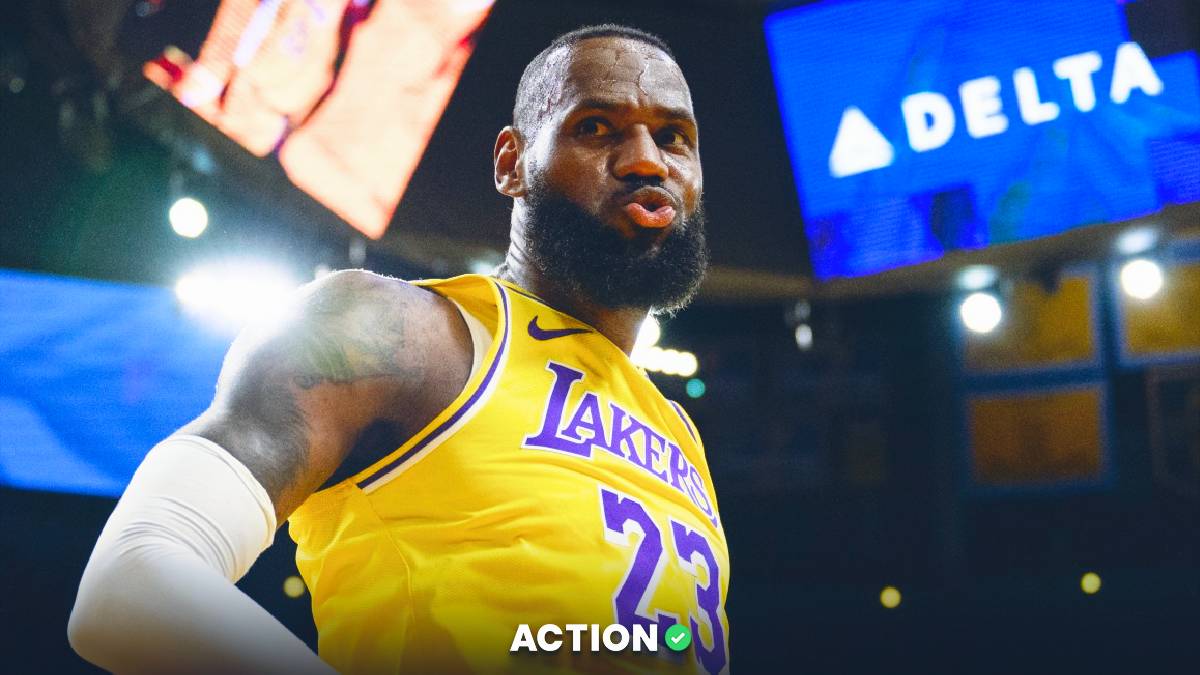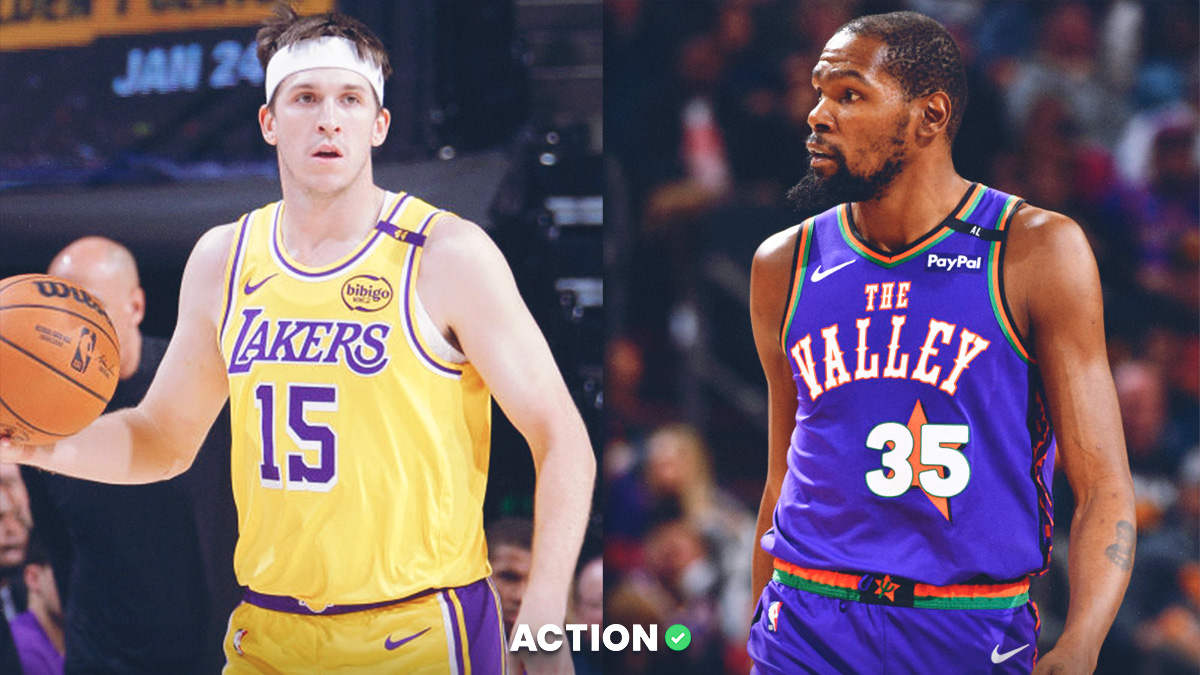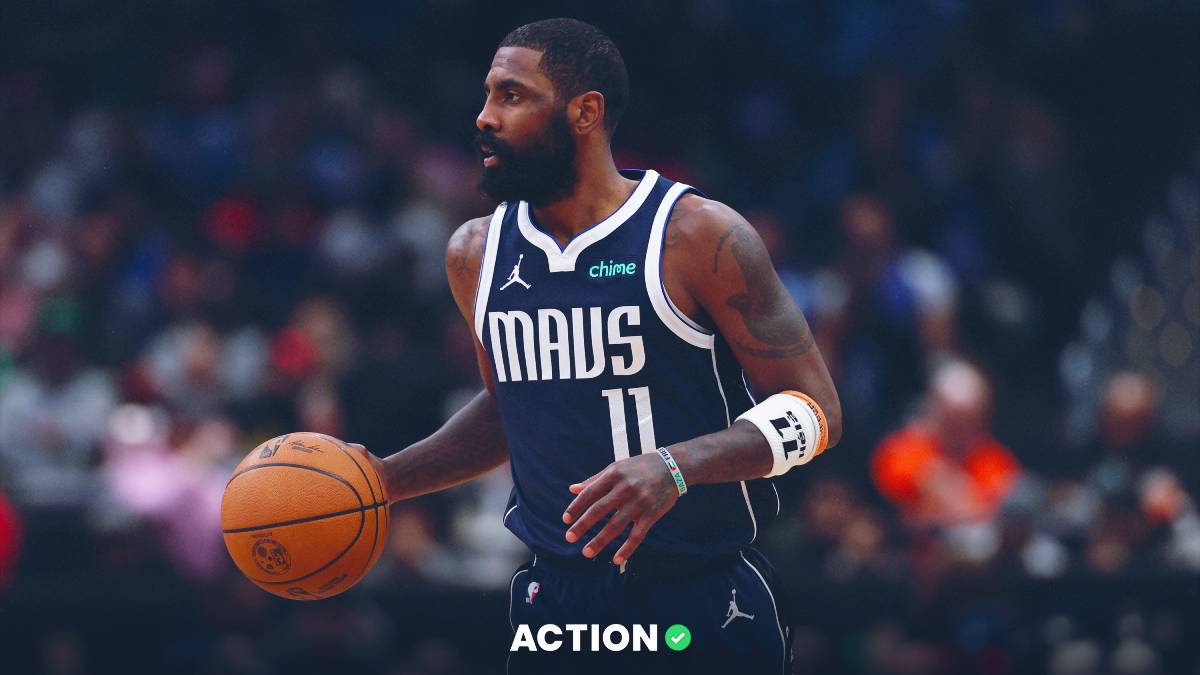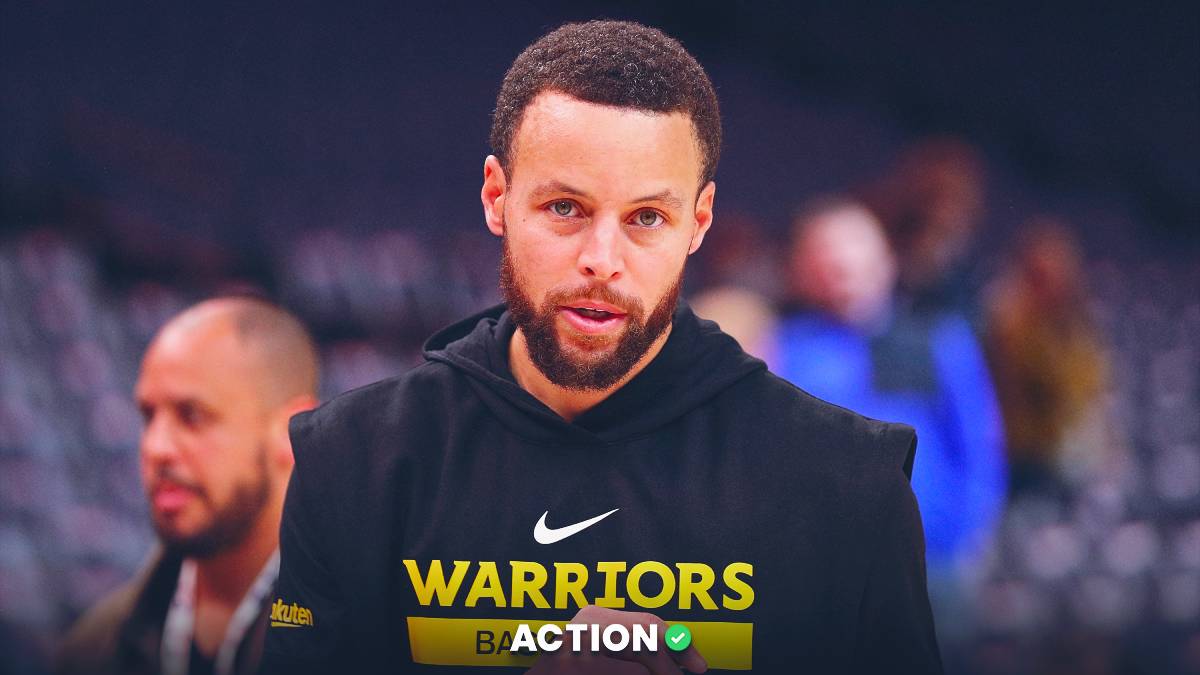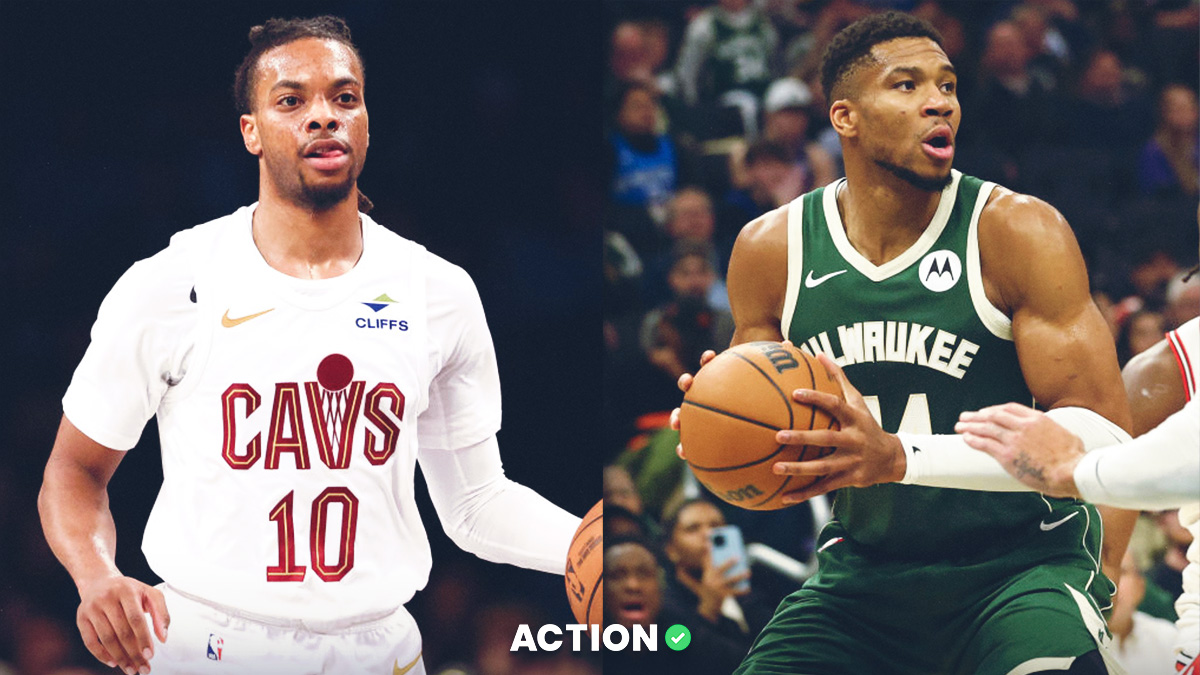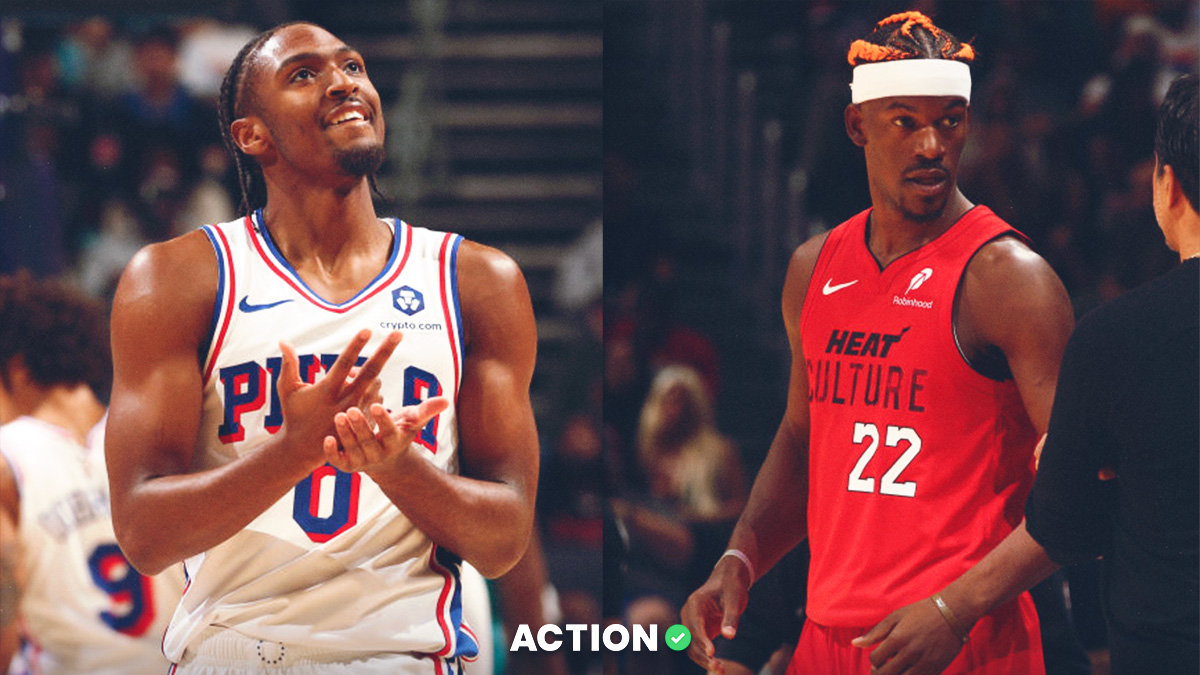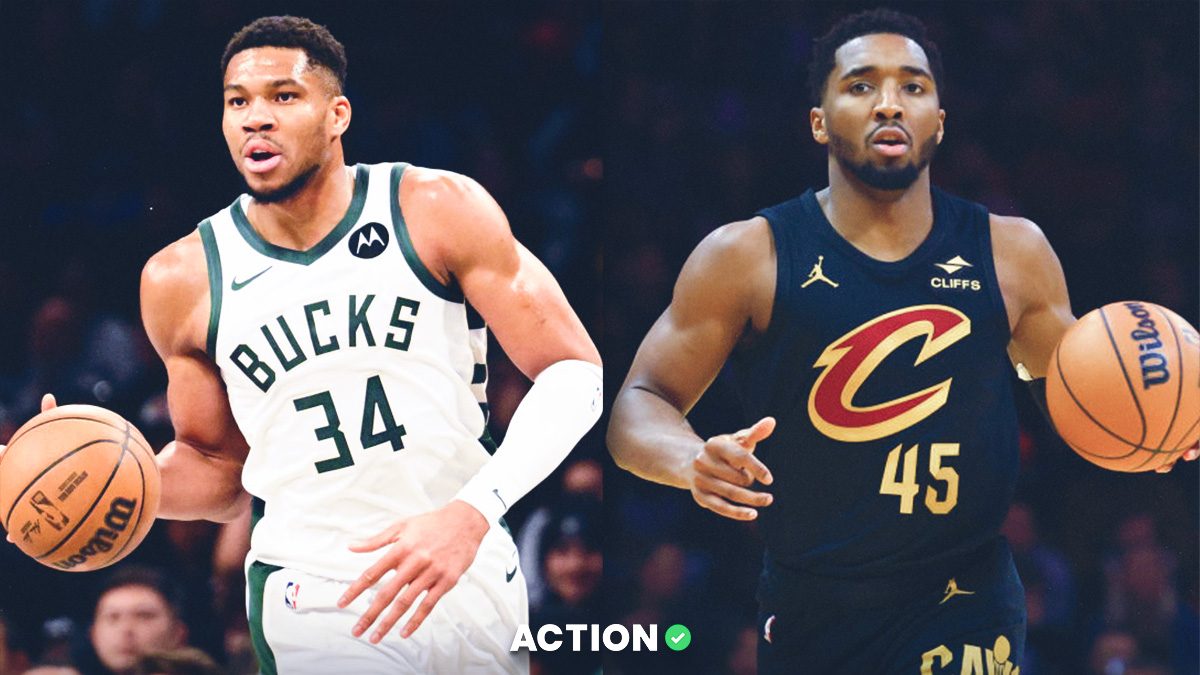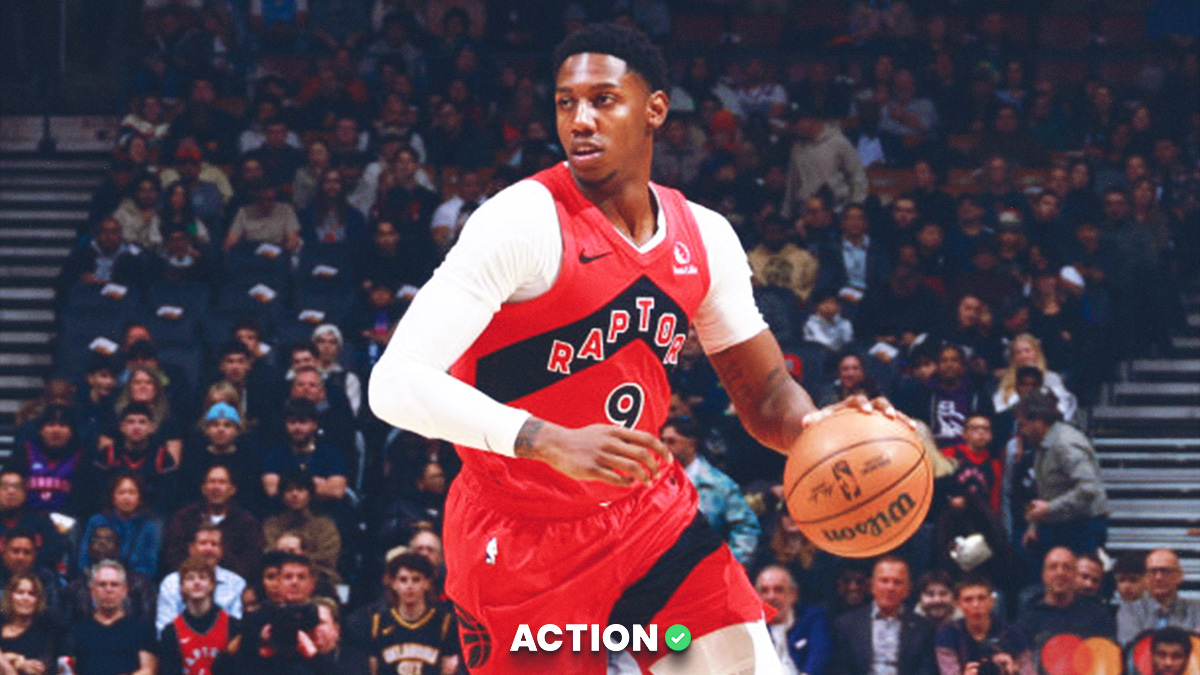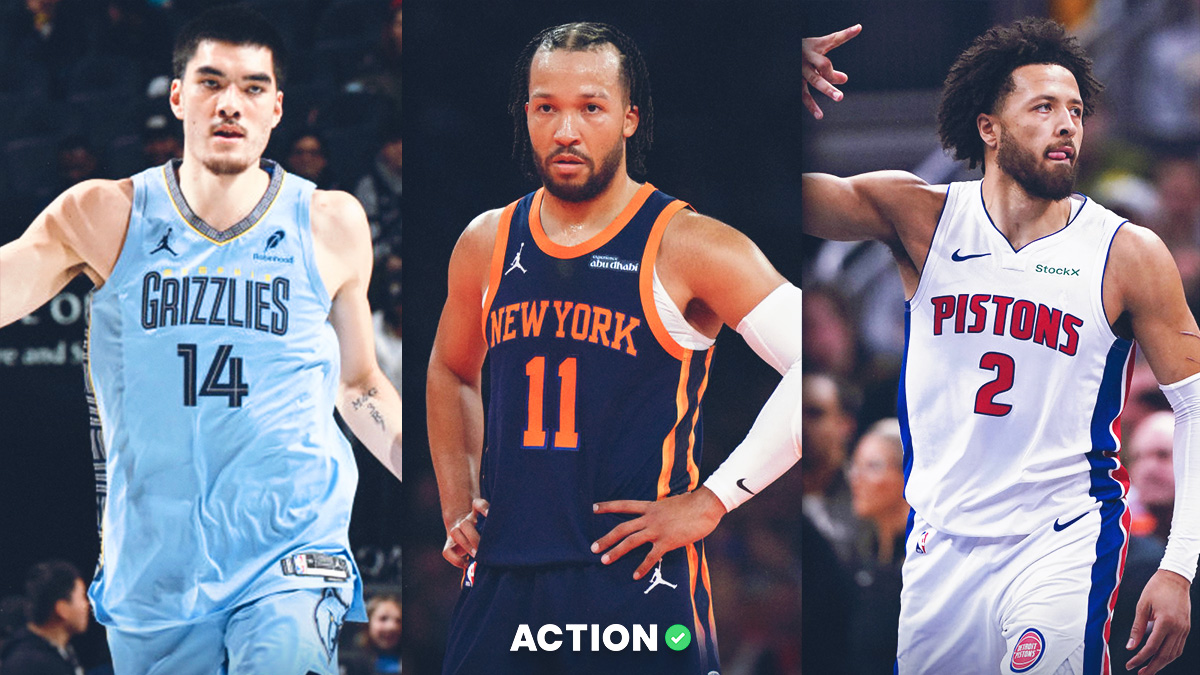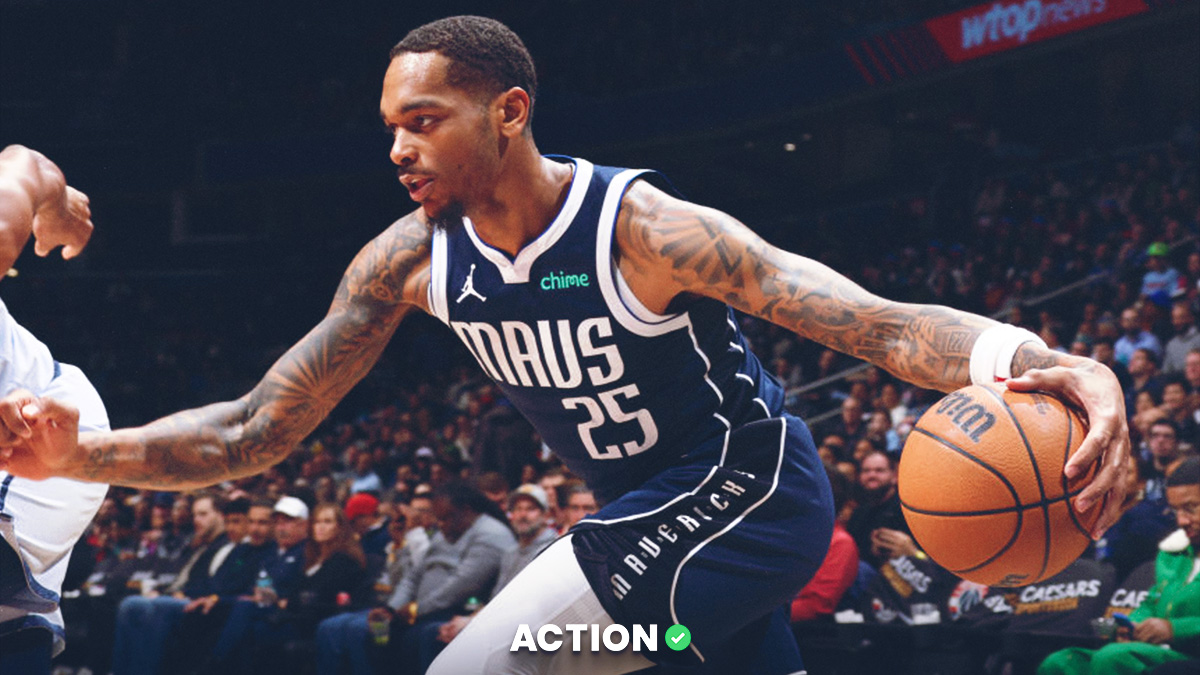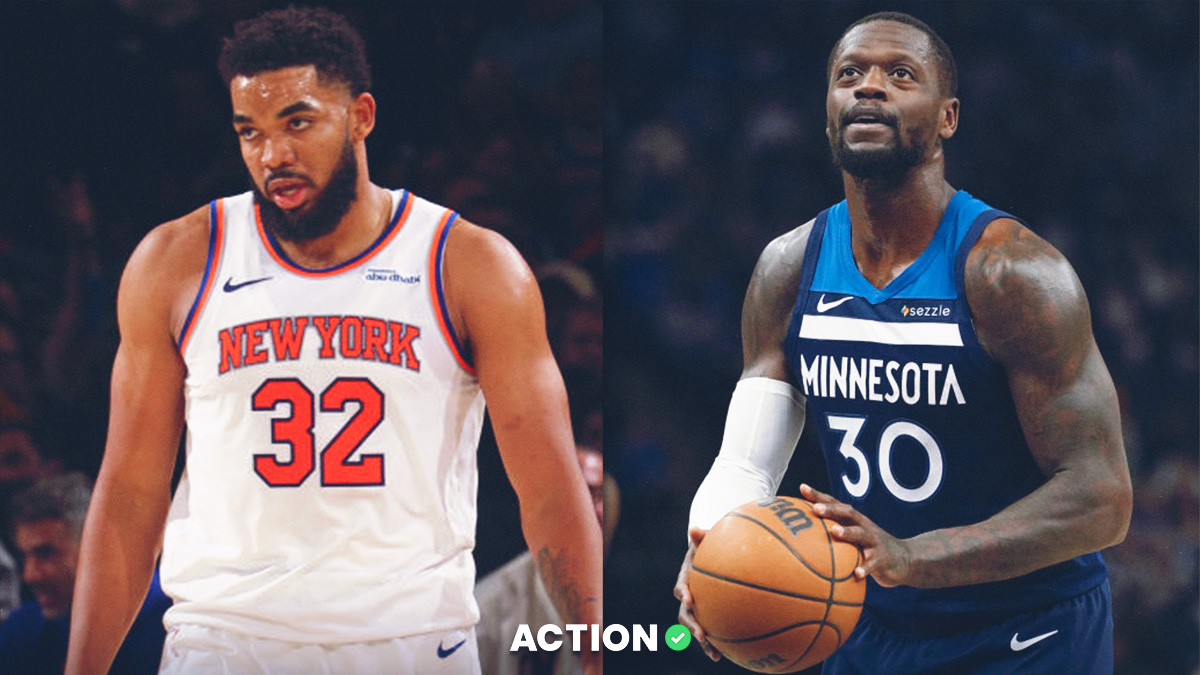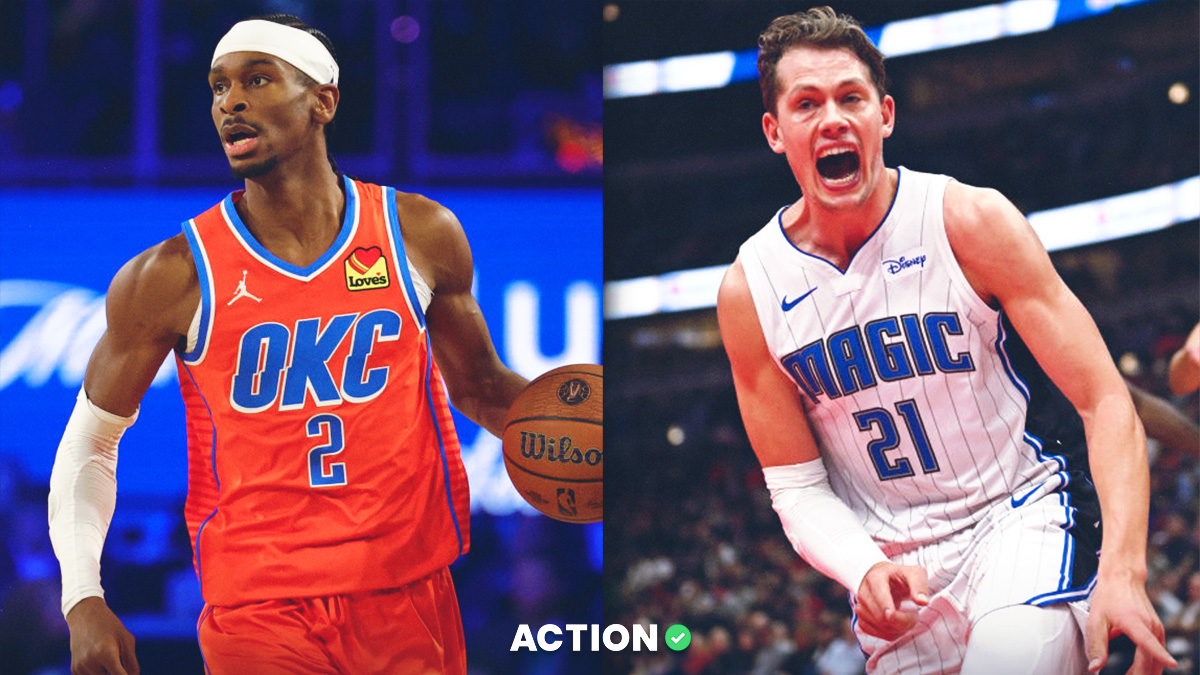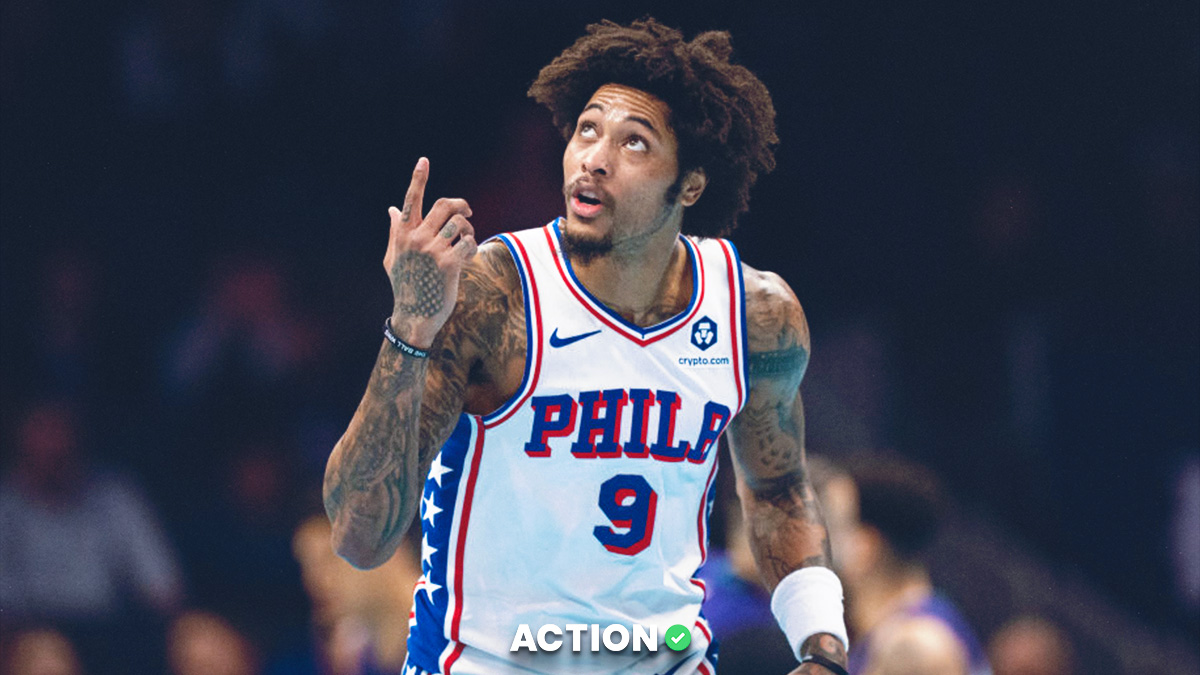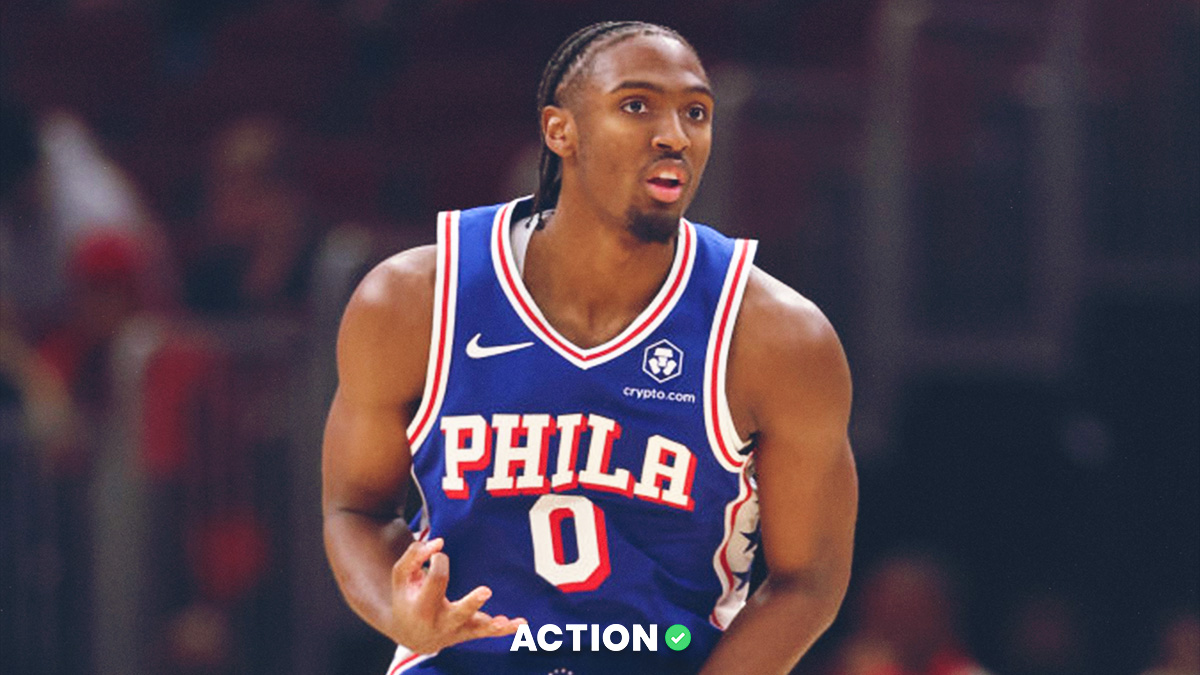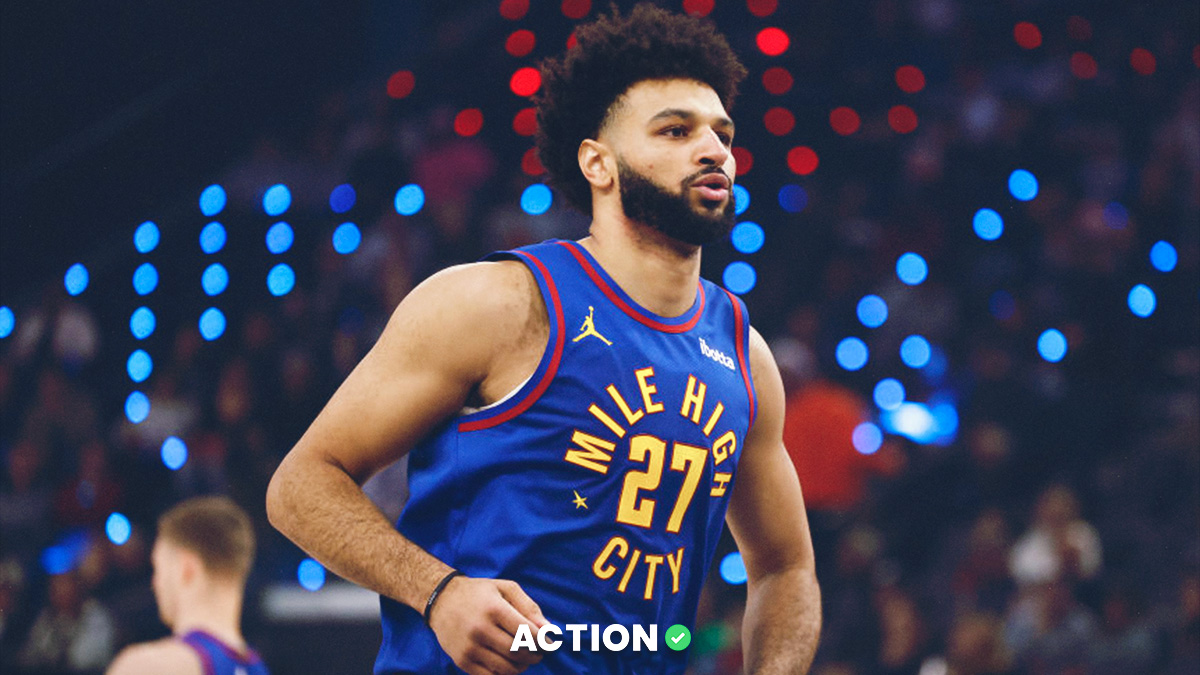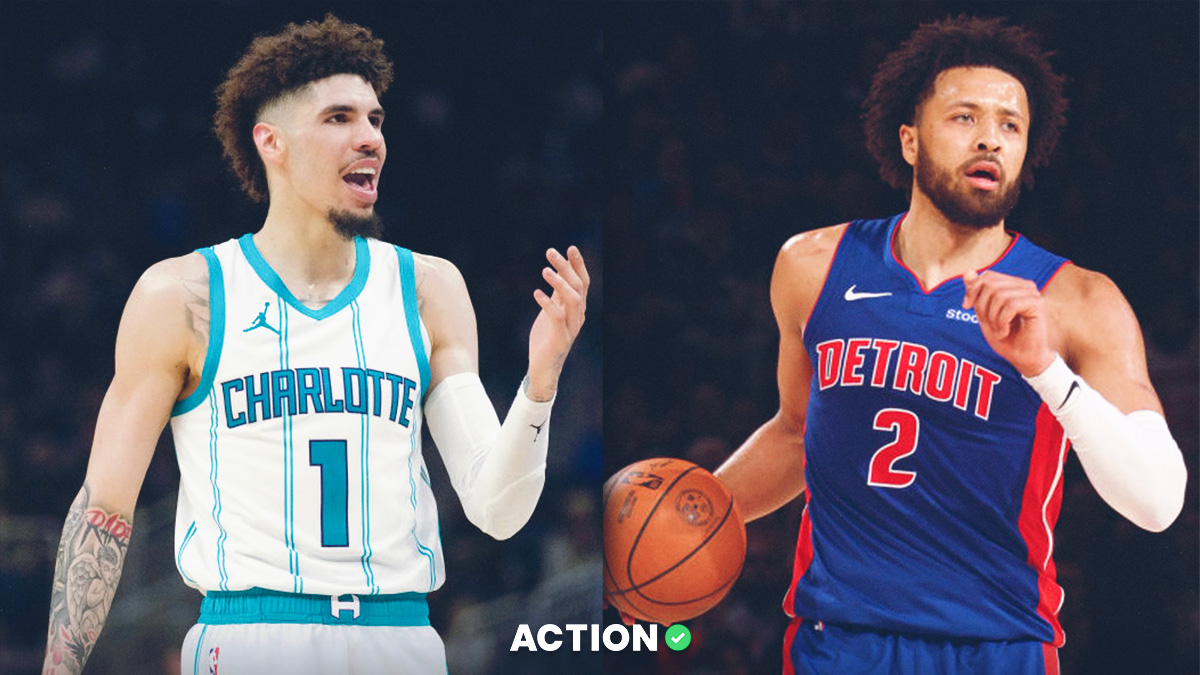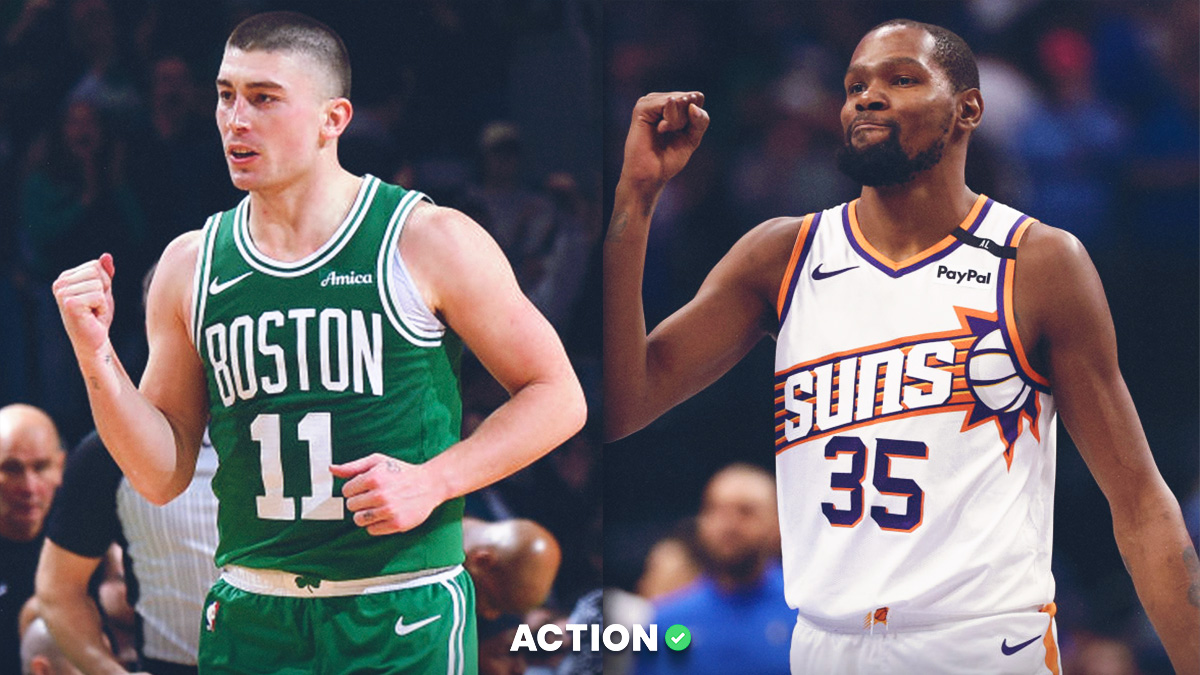Check out this post for updated season win totals and this post for my other 29 season win total picks.
Suns Win Total Odds
The Case for the Over
Continuity. The Suns retain all the key pieces from the Finals run, and most of them are young. Devin Booker, Mikal Bridges, Deandre Ayton, and Cam Johnson are all age 25 or younger. They can handle the workload of the bubble, then the 72-game season, then the deep playoff run.
They have a proven formula. Up and down the roster, the Suns have not just traditional positions capably filled but roles as well.
Floor generalship? Chris Paul. Top-level scorer? Booker. Rim protection? Ayton. Perimeter defense and shooting? Bridges. Veteran defense? Jae Crowder (and some shooting now and again, too). Backup point guard? Cameron Payne.
Speaking of Booker, did you know that in a season where the Suns had the second-best record in the league and made the Finals, he had a down season?
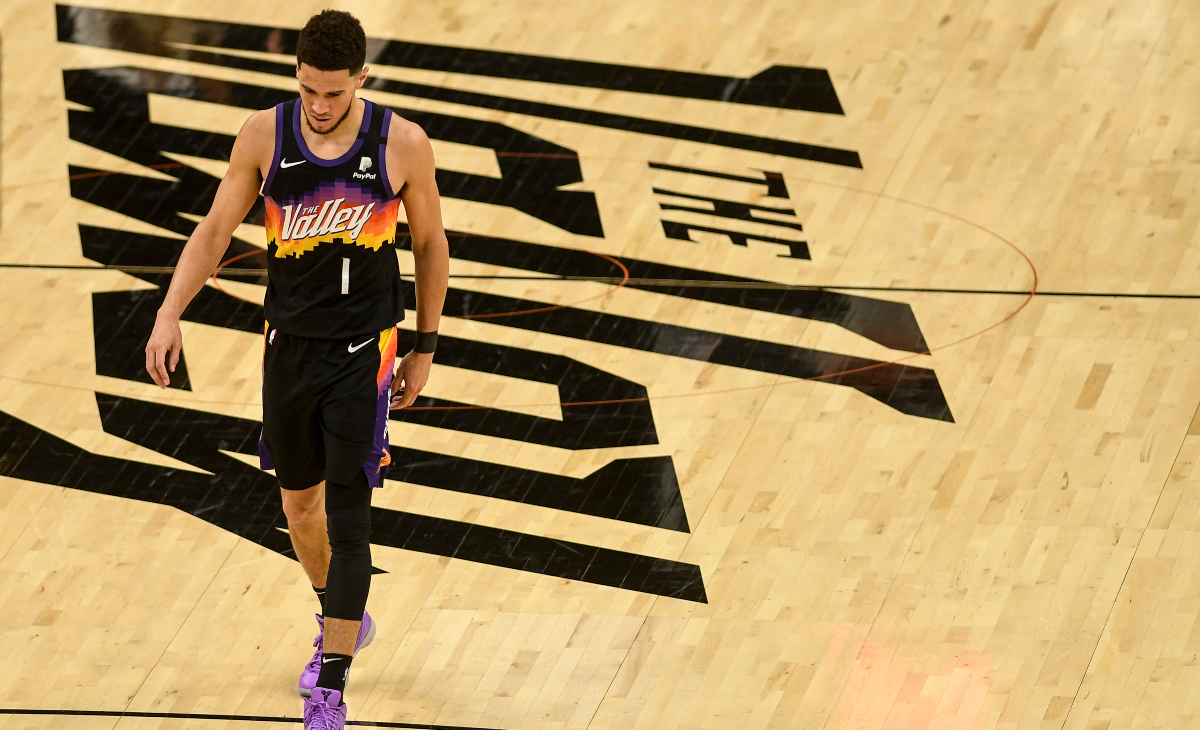
His 3-point and free throw percentages (and eFG% and TS% by extension) were not only down year over year, but lower than his career averages. You have to imagine Booker will rebound.
Phoenix was the best team in the league vs. good teams last season. They finished 17-7 vs. teams with a top-10 point differential and 27-11 overall vs. teams .500 and above. They pick up wins in low-probability situations consistently. It’s more likely that their middling numbers vs. sub-.Five hundred teams regress to the standard of their overall team.
Their schedule is cake. The Suns have the fifth-easiest rest-adjusted schedule per PositiveResidual.com. Some of that is altitude adjusted, but they have an average amount of back-to-backs and 15 rest advantage games to 14 disadvantage.
The number is juiced to the over, and the books are incentivizing the under. You have an excellent team bringing back all but one of the key pieces, with a favorable schedule. What’s not to like?
The Case for the Under
To the tune of “Tradition” from Fiddler on the Roof: “REGRESSION!”
Phoenix had the third-fewest games lost due to injury last season per ManGamesLost.com and the fourth-fewest Win Shares. Paul missed one game all season. Ayton missed three, Booker just four, Mikal Bridges didn’t miss a single game.
The Suns were one of the healthiest teams all last season. The perception of them is inflated coming off the Finals run. While they had bad luck in the first round with Paul’s shoulder injury, the Lakers had worse injury luck, then Phoenix faced the Nuggets without Jamal Murray and the Clippers without Kawhi Leonard.
That’s not their fault, you play who’s in front of you, and again, the Suns matched up great with great teams all season. But if we’re expecting great things again based on the Finals run, some context is needed. And the Suns are at least likely to have closer to average injury luck.
Speaking of injuries, don’t overlook the injury to Dario Saric in the Finals. Saric provided the Suns with a small-ball five option that leveled teams. The starters with Saric at center averaged net 11.4 points per 100 possessions, and the bench with Saric at center had a net +14.6 mark.
In the offseason, they added JaVale McGee, but he is a pretty standard replacement center who doesn’t spread the floor. They’ll miss the counter that Saric provided.
Speaking of that record, the Suns’ performance in those games vs. elite teams is difficult to sustain. Even great regular season teams usually are closer to .500 vs. other top teams. Meanwhile, despite that performance, the Suns still weren’t the No. 1 seed (Utah) because of their record vs. sub-.500 teams, 24-10.
Usually 10 losses vs. sub-.500 teams in an 82-game season drag down the record to borderline playoff levels, let alone in a 72-game season. I’m not suggesting the Suns will slip that far, but their win profile from last season throws up several flags.
Their Pythagorean expected wins vs. teams with a top-10 differential was 2.5 wins better than the actual. They were expected to go 14-10 instead of 17-7.
That three-game differential would have moved them one game ahead of the Nuggets, who tanked their final game vs. the Blazers. The Suns were also 9-3 in 3-point games last season, by far the best record in the league in coin-flip games. Things could have gone much differently if just adjusted for luck, let alone for injury and other factors.
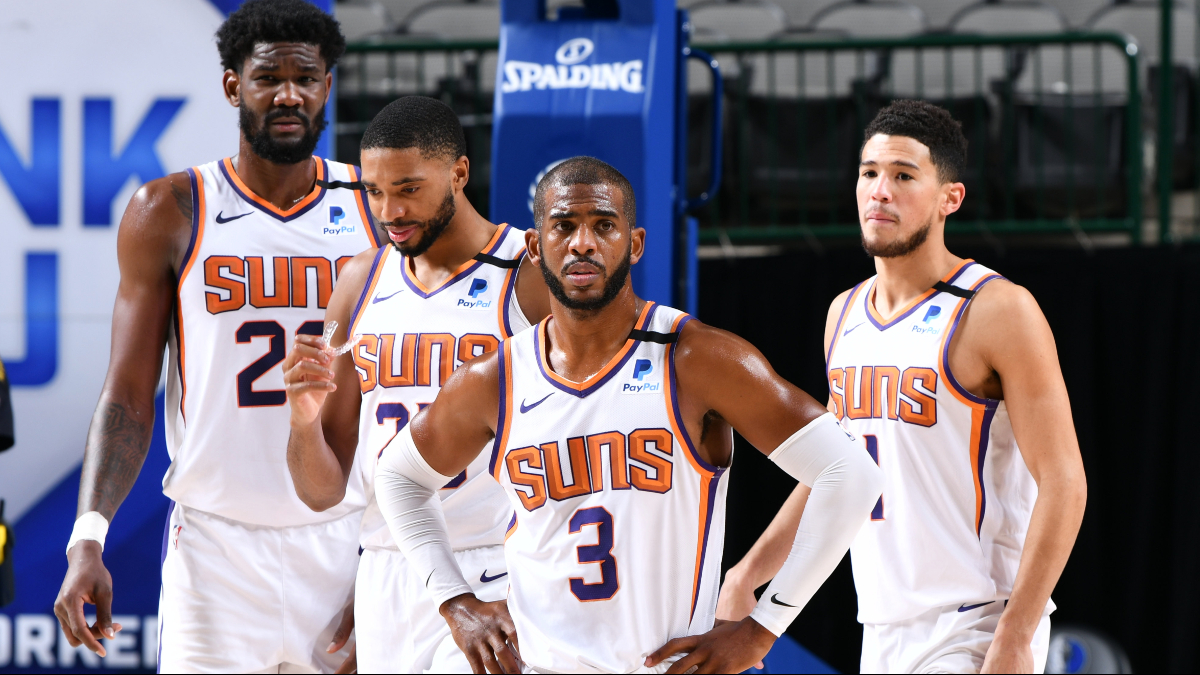
Let’s talk about that schedule. The top-line figures are indeed good. But most of that is early in the season. They may start hot, with a weak schedule and no rest red flags until Jan. 1. But as the schedule gets more challenging, the rest situations get harder.
After the All-Star Break, they have the sixth-toughest rest-adjusted strength of schedule, play 14 of their final 24 games on the road vs. good teams, and have five back-to-backs out of those 24 games.
Yes, I would rather they have a tougher end than start for most teams, but the Suns are in a position to start slow for other reasons.
A typical offseason in pre-COVID times is roughly 97 days, from the middle of June to the end of September. The Suns will have had 69 days between Game 6 of the Finals and media day. Then you have to consider that Booker immediately went to Tokyo for the Olympics. That’s just a lot of basketball, even for a young guy.
The Suns had a remarkable season. They were +2200 to make the Finals in the preseason, tied with the Heat the season before for the longest preseason conference title odds for a team who made the Finals since at least 2008.
However, part of what made this season special was outperforming expectations by such a degree. The market expectations have adjusted to the Finals appearance; the Suns are +650 to win the West.
The Suns had the third-best shooting mark relative to expected eFG% of any team this season behind the Nets and Clippers, per Second Spectrum data provided to Action Network.
Per CleaningTheGlass.com, Phoenix had the fourth-best eFG% in non-garbage time vs. the fourth-worst expected mark based on shot location. They have good shooters. It’s not about outperforming expectation; it’s about the degree to which they exceeded it.
Suns Win Total Bet
Phoenix won at a 58-wins-per-82-games pace last season, so a full seven-game drop seems steep. That’s also the difference in record vs. teams over .500 between Phoenix and the Nuggets and Clippers.
So if we reasonably project at least a slight regression in performance vs. the top teams and then add in a touch worse dose of injury luck, we’re solidly in range.
If the Suns cruise past this number, they’re likely second in the conference again. Are they finishing ahead of the Lakers and Jazz (and Warriors and Nuggets)?
The regression we’re talking about is baked into the number. It’s not just a question of will they regress; the number assumes that.
I think it’s still a little light.
CP3’s injury history alone causes concerns for topping 51. They can still have a good season and be in the mix for the West title at 50 wins. Performance regression from a handful of areas and injury impact likely brings the under in play.
The Suns had the best bench net rating last season, and while Cam Payne’s career turn was fantastic, it’s hard to believe that performance is stable year over year, and the Saric injury hurts.
It’s definitely possible that the Suns’ injury luck holds year over year. It’s not a guarantee that they’ll be significantly more injured than last season. But even a slight dip beyond Saric is enough to narrow their margin for error.
This isn’t a best bet, but I do think there’s value on the under, especially if you can get better than -110 on the juice (+105 at BetMGM).


